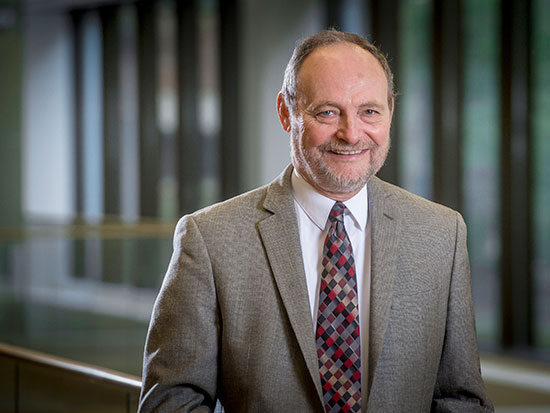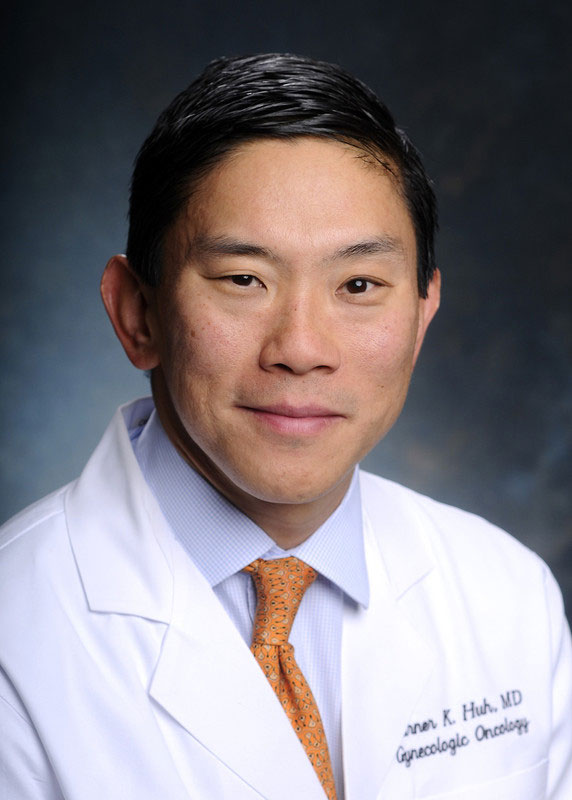 Michael Birrer, M.D., Ph.D.Nearly 80 million Americans — one out of every four people — are infected with the human papillomavirus, and more than 31,000 will be diagnosed with an HPV-related cancer this year. Despite the availability of a vaccine to prevent the infections that cause these cancers, HPV vaccination remains low in the United States.
Michael Birrer, M.D., Ph.D.Nearly 80 million Americans — one out of every four people — are infected with the human papillomavirus, and more than 31,000 will be diagnosed with an HPV-related cancer this year. Despite the availability of a vaccine to prevent the infections that cause these cancers, HPV vaccination remains low in the United States.
The UAB Comprehensive Cancer Center has partnered with 69 other National Cancer Institute-designated cancer centers to issue a statement urging for increased HPV vaccination and screening to eliminate HPV-related cancers, starting with cervical cancer. These institutions collectively recognize insufficient vaccination as a public health threat and call upon the nations’ health care providers, parents and adolescents to take advantage of this rare opportunity to eliminate several different types of cancer in men and women.
“We have the opportunity to eliminate multiple HPV-related cancers beginning with cervical cancer,” said Michael Birrer, M.D., Ph.D., director of the UAB Comprehensive Cancer Center. “To accomplish this goal, we need to utilize our most important tool — HPV vaccination. We hope our collective action as NCI-designated cancer centers will educate and motivate the public and highlight this tremendous opportunity we have to eliminate a preventable cancer.”
Vaccination rates remain significantly lower than other recommended adolescent vaccines in the United States. According 2016 data from the Centers for Disease Control, less than 50 percent of girls and 38 percent of boys completed the recommended vaccine series. Research shows there are a number of barriers to overcome to improve vaccination rates, including a lack of strong recommendations from physicians, and parents’ not being properly informed that this vaccine protects against several types of cancer in men and women. HPV causes multiple cancers, including cervical, anal, oropharyngeal (middle throat) and other genital cancers.
 Warner Huh, M.D.UAB has been at the forefront of conducting groundbreaking cancer research, especially in developing the HPV vaccine. Warner Huh, M.D., director of the UAB Division of Gynecologic Oncology and senior medical officer for the cancer service line at the UAB Comprehensive Cancer Center, has tested several HPV vaccines. He was one of the first to test Gardasil, the first U.S. Food and Drug Administration-approved vaccine for the prevention of cervical cancer and genital warts. Huh was a lead author with a multinational study of a new nine-valent HPV vaccine that has even further potential to dramatically reduce rates of cervical cancer and perhaps eliminate cervical cancer screening altogether.
Warner Huh, M.D.UAB has been at the forefront of conducting groundbreaking cancer research, especially in developing the HPV vaccine. Warner Huh, M.D., director of the UAB Division of Gynecologic Oncology and senior medical officer for the cancer service line at the UAB Comprehensive Cancer Center, has tested several HPV vaccines. He was one of the first to test Gardasil, the first U.S. Food and Drug Administration-approved vaccine for the prevention of cervical cancer and genital warts. Huh was a lead author with a multinational study of a new nine-valent HPV vaccine that has even further potential to dramatically reduce rates of cervical cancer and perhaps eliminate cervical cancer screening altogether.
“There is no question that the vaccine works,” Huh said. “We now have a second-generation vaccine that protects against 90 percent of the HPV that are associated with cervical cancer. This vaccine can literally eradicate the majority of cervical cancer, if given widely and appropriately.
“We need health care providers to stand with us and recommend the HPV vaccine. Parents can join with us by asking their doctors about the vaccination.”
HPV experts from the nation’s top cancer centers, including the UAB Comprehensive Cancer Center, along with partners from the NCI, CDC and the American Cancer Society, are meeting June 7-8 in Salt Lake City to discuss a path forward to eliminating cancers caused by HPV, including ways to reduce barriers to vaccination, as well as share education and training strategies to improve vaccination rates.
“In addition to being at the forefront of research, the UAB Cancer Center along with multiple stakeholders across the state established the Alabama HPV Vaccination Coalition, which has been a model for other states across the country,” said Isabel Scarinci, Ph.D., professor in the UAB Division of Preventive Medicine and associate director for Globalization and Cancer at the UAB Comprehensive Cancer Center.
“This movement is no longer just in the hands of the medical community, as cervical cancer screening and vaccination discoveries are already in existence,” she said. “There are many socio-economic and cultural reasons that stand in the way of adherence. But I am optimistic that we can legitimately move the needle as the scientific, public and private sectors combine efforts and expertise, with Alabama’s being one of the leaders in this effort.”
This is the third year that all NCI-designated cancer centers have come together to issue a national call to action. All 70 cancer centers unanimously share the goal of sending a powerful message to parents, adolescents and health care providers about the importance of HPV vaccination for the elimination of HPV-related cancers.